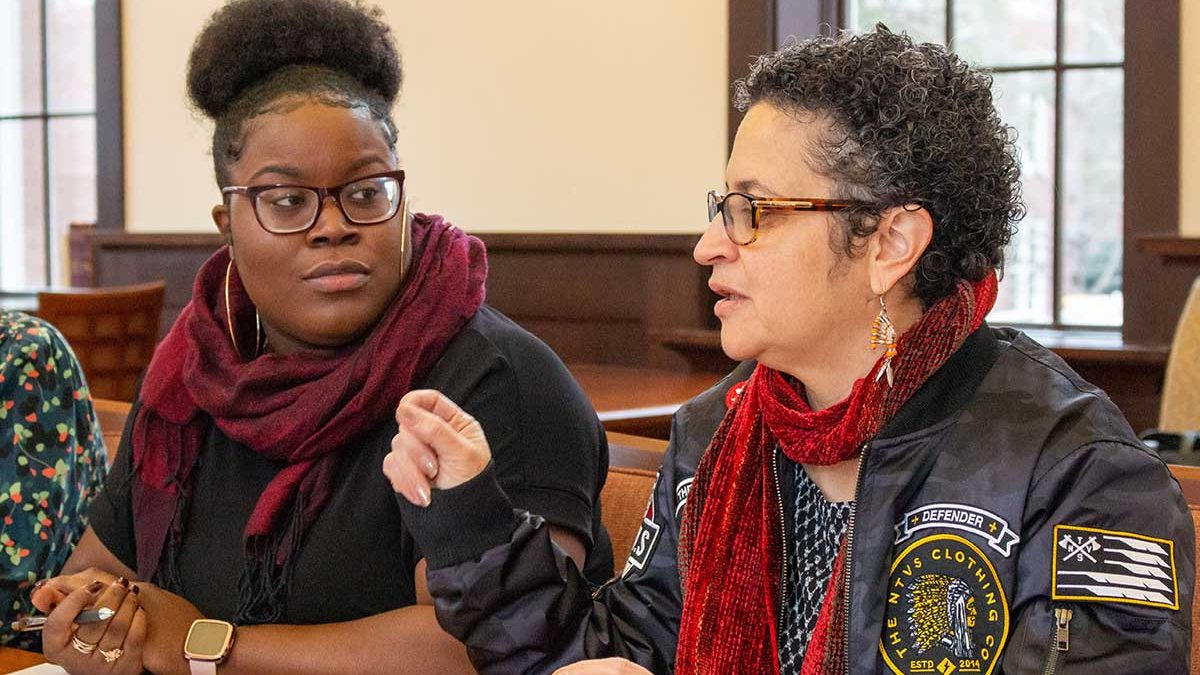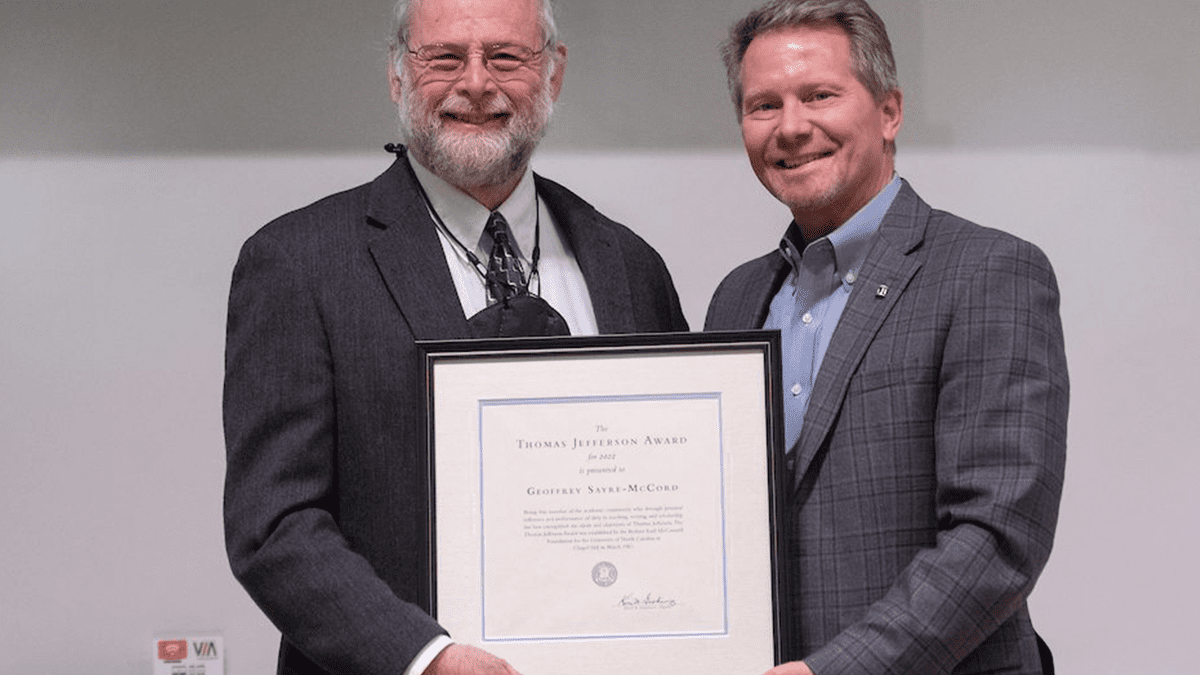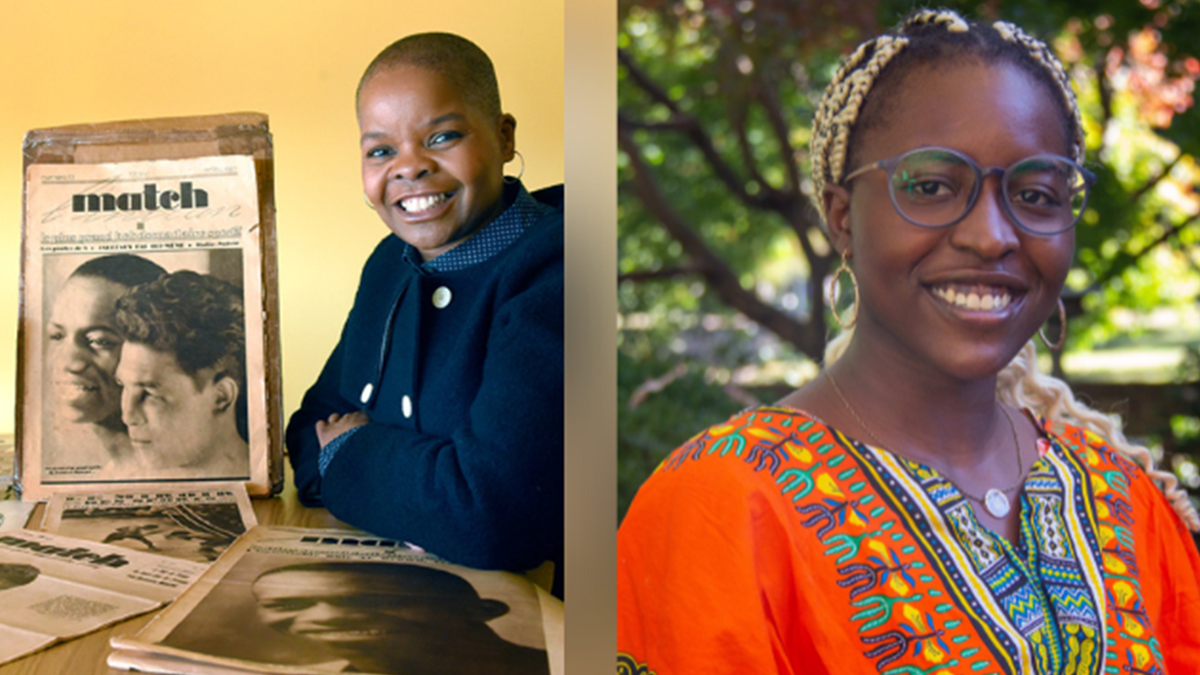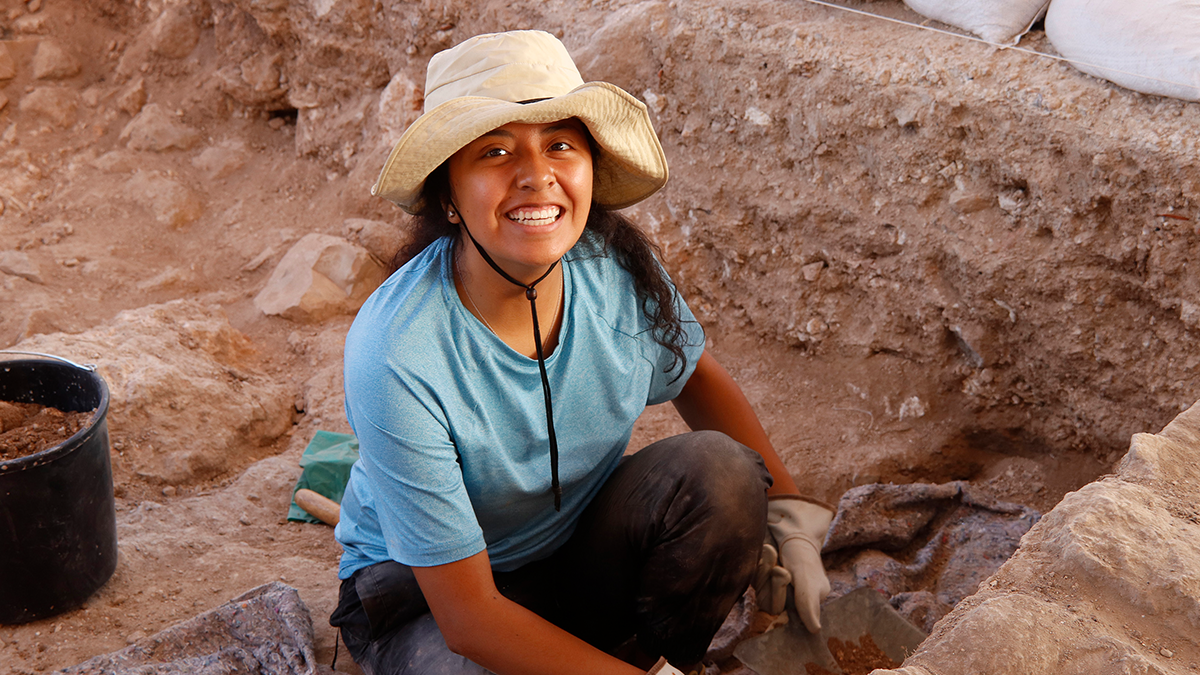The Human Side of Research
Published on September 25, 2020An interdisciplinary team of humanities students and faculty are documenting climate change in Robeson County.

An interdisciplinary team of humanities students and faculty are documenting climate change in Robeson County.
PhD candidate Diamond Holloman (left) and Southern Futures co-director Malinda Maynor Lowery (right)
Diamond HollomanOpens in new window’18 (M.S.) is fascinated with what she calls the “sister concepts of vulnerability and resilience” that she has witnessed firsthand among the people of Robeson County, North Carolina.
Hurricanes Matthew in 2016 and Florence two years later brought devastating flooding to the community, located about 90 miles inland from the coast; the Lumber River runs through the city of Lumberton, the county seat. Home to the Lumbee Tribe of North Carolina, it is one of the most racially diverse rural counties in the United States. People are still recovering from those natural disasters and are facing newfound challenges in light of COVID-19.
Holloman, a PhD candidate in the Environment, Ecology and Energy Program, leads an interdisciplinary research project, “Voices of Resilience and Recovery in Robeson County,” as part of a consortium of universities that examines the impact of climate change through the lens of environmental humanities. Her collaborators include faculty members Jacqueline LawtonOpens in new window in the department of dramatic art and Dylan ClarkOpens in new window in archaeology and anthropology.
The research project is part of Southern FuturesOpens in new window, a new university-wide initiative that supports cutting-edge scholarship, creative endeavors and thoughtful conversations across disciplines, in partnership with the Center for the Study of the American South, the College of Arts & Sciences, University Libraries and Southern communities.
“I hope this project will further amplify the voices of racially marginalized folks in Robeson County,” said Holloman, who has been doing community-engaged work in the area for several years. Before coming to Carolina, she majored in environmental studies and journalism at New York University and experienced Hurricane Sandy.
“These people are not subjects to be researched, but multi-dimensional, multi-faceted people who are taking the time and energy to advocate for their communities.”
Read moreOpens in new window about how Holloman and the research group are using PhotoVoiceOpens in new window, a photography-based humanities research tool that helps participants define issues important to their communities, , and how Lawton is working with community members to develop a creative response to the project.


